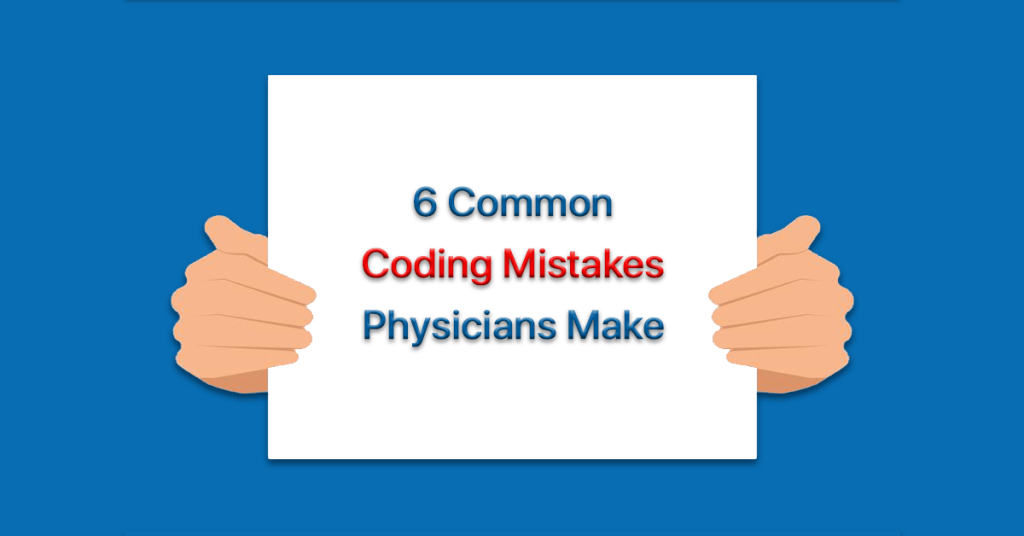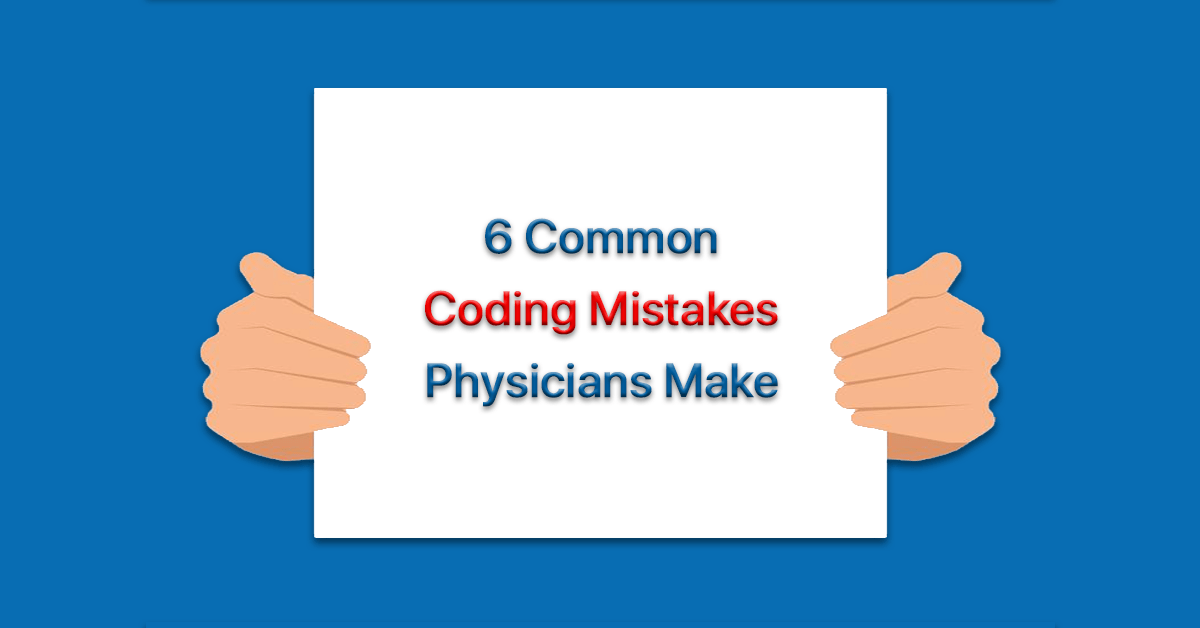In this article, we will explore the topic of whether medical coders make mistakes. You will learn about the challenges faced by medical coders and the potential for errors in the coding process. We will also discuss the impact of these mistakes on healthcare providers and patients, as well as the measures taken to prevent and correct coding errors. By the end of this article, you will have a better understanding of the prevalence and consequences of mistakes in medical coding.
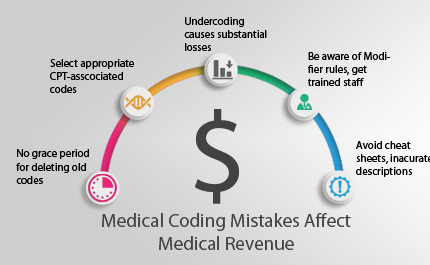
Introduction
Medical coding plays a crucial role in the healthcare industry, as it involves translating complex medical diagnoses and procedures into codes that can be used for billing purposes. Medical coders are responsible for accurately assigning these codes, ensuring proper documentation, and maintaining an efficient healthcare system. However, despite their best efforts, mistakes can still be made. In this article, we will explore the importance of medical coding, the reasons behind coding mistakes, the consequences of such errors, methods to prevent them, the importance of quality control, the responsibilities of medical coders, the utilization of coding guidelines, and the role of collaboration in reducing mistakes.
Importance of Medical Coding
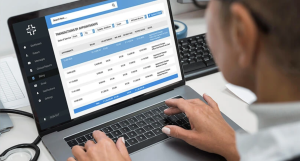
Accurate Medical Billing
One of the primary reasons why medical coding is essential is accurate and efficient medical billing. Accurate coding enables healthcare providers to submit claims to insurance companies correctly. Proper coding ensures that healthcare facilities receive the appropriate reimbursement for their services rendered. Without accurate coding, providers may face denials or delays in payment, which can have a significant financial impact on their operations.
Correct Documentation
Medical coders also play a crucial role in ensuring that medical documentation is accurate and complete. When coding medical records, coders review the documentation provided by healthcare providers, including diagnoses, procedures, treatments, and medications. They then assign the appropriate codes, based on this documentation. This process helps maintain a comprehensive and reliable medical record that can be used for future reference and analysis.
Efficient Healthcare System
Medical coding contributes to the efficiency of the overall healthcare system. By accurately documenting and coding medical procedures and diagnoses, healthcare providers can access critical patient information quickly. Proper coding allows for streamlined communication among healthcare professionals, reduces the risk of misinterpretation, and enables effective decision-making regarding patient care. Additionally, accurate coding facilitates medical research, health outcome analysis, and public health reporting.
Reasons for Mistakes in Medical Coding
Complexity of Coding System
One of the main reasons why mistakes in medical coding occur is the complexity of the coding system itself. There are various coding systems in use, such as the International Classification of Diseases (ICD) and the Current Procedural Terminology (CPT). These coding systems consist of thousands of codes, each representing a specific diagnosis, procedure, or treatment. Understanding the intricacies of these coding systems and accurately applying the codes can be challenging, leading to errors.
Human Error
Like any other profession, medical coders are susceptible to human error. They may misinterpret documentation, overlook critical details, or simply make mistakes during the coding process. Factors such as fatigue, distraction, and time pressure can contribute to errors. Despite their best efforts, medical coders are not immune to mistakes, underscoring the need for quality control measures.
Lack of Standardization
The lack of standardization in medical coding can also contribute to mistakes. Different healthcare facilities may have their own coding processes and practices, leading to inconsistencies in coding. Additionally, coding guidelines and regulations can undergo frequent updates and changes, making it challenging for medical coders to stay up to date with the latest coding protocols. This lack of standardization can result in coding errors and discrepancies.
Consequences of Mistakes in Medical Coding
The world of medical coding is highly intricate, and even minor mistakes can have far-reaching consequences. In this discussion, we will explore the various repercussions that errors in medical coding can bring about, including financial setbacks, legal issues, and adverse effects on patient care. Understanding these consequences underscores the importance of accuracy and precision in medical coding practices.
Financial Impact
Mistakes in medical coding can have significant financial consequences. Incorrect coding can lead to denied or delayed reimbursement from insurance companies, resulting in decreased revenue for healthcare providers. Additionally, coding errors can lead to penalties, fines, and audits by regulatory bodies, further adding to the financial burden. Furthermore, improper coding may result in undercoding, where the full extent of the services provided by healthcare providers is not adequately captured, leading to revenue loss.
Negative Patient Outcomes
Apart from the financial impact, mistakes in medical coding can also have negative consequences on patient outcomes. Inaccurate coding can result in incorrect treatment plans, delays in necessary care, or even the administration of inappropriate treatments. These errors can compromise patient safety and lead to subpar medical interventions. Patients rely on accurate coding for proper healthcare management, and any mistakes in this process can have detrimental effects on their well-being.
Legal Issues
Medical coding errors can also lead to legal issues. Inaccurate coding may result in billing fraud or abuse, which is a serious offense. Compliance with coding regulations is crucial to avoid legal troubles. The improper coding of certain conditions or procedures may also raise concerns of malpractice or negligence, potentially resulting in lawsuits against healthcare providers. These legal issues can tarnish the reputation of healthcare facilities and have far-reaching consequences.
Methods to Prevent Mistakes in Medical Coding
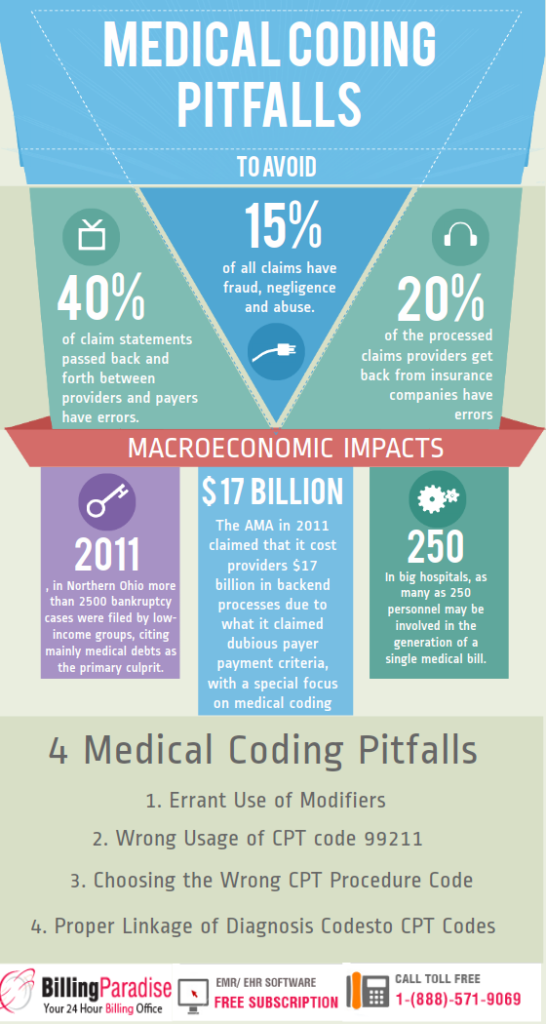
Staff Training and Education
One of the key methods to prevent mistakes in medical coding is through comprehensive staff training and education. Healthcare facilities should ensure that their medical coders receive thorough training on coding guidelines, regulations, and updates. Continuous education programs, workshops, and seminars should be provided to keep coders updated with the latest coding practices. By investing in staff training and education, healthcare facilities can significantly reduce the occurrence of coding errors.
Utilizing Technology and Software
Technology plays a vital role in reducing coding mistakes. Healthcare facilities can implement coding software that automates various coding processes, making them more accurate and efficient. Such software can help coders verify codes, cross-reference documentation, and flag potential errors. Additionally, electronic health record (EHR) systems can assist coders in retrieving and analyzing patient data, minimizing the risk of incorrect coding due to manual entry or transcription errors.
Regular Audits and Reviews
Regular audits and reviews of coding practices are critical for identifying and rectifying coding errors. Healthcare facilities should establish internal quality control processes that include systematic audits of coding documentation and procedures. These audits can help identify any patterns of coding errors, address training needs, and implement corrective actions. External reviews by coding experts or compliance officers can also provide valuable insights and recommendations for improvement.
Importance of Quality Control in Medical Coding

Ensuring Accuracy
Quality control in medical coding is essential to ensure the accuracy of coded medical records. Through quality control measures such as audits and reviews, healthcare facilities can identify and correct any coding errors. This accuracy is crucial for proper billing, patient care, and medical research. By maintaining accurate coding practices, healthcare facilities can uphold their standards of excellence and deliver high-quality healthcare services.
Improving Patient Safety
Quality control in medical coding directly contributes to patient safety. Accurate coding helps healthcare providers make informed decisions about patient care, ensuring the right treatments and interventions are provided. When coding mistakes are minimized, patients can receive appropriate care without delays or errors. By prioritizing quality control, healthcare facilities can prioritize patient safety and well-being.
Avoiding Legal Troubles
Quality control measures also help healthcare facilities avoid legal troubles related to coding errors. By detecting and rectifying coding mistakes early on, healthcare providers can mitigate the risk of billing fraud, legal disputes, and regulatory non-compliance. Consistent quality control processes demonstrate a commitment to ethical and compliant coding practices, which can help protect healthcare organizations from legal issues.
Responsibilities of Medical Coders
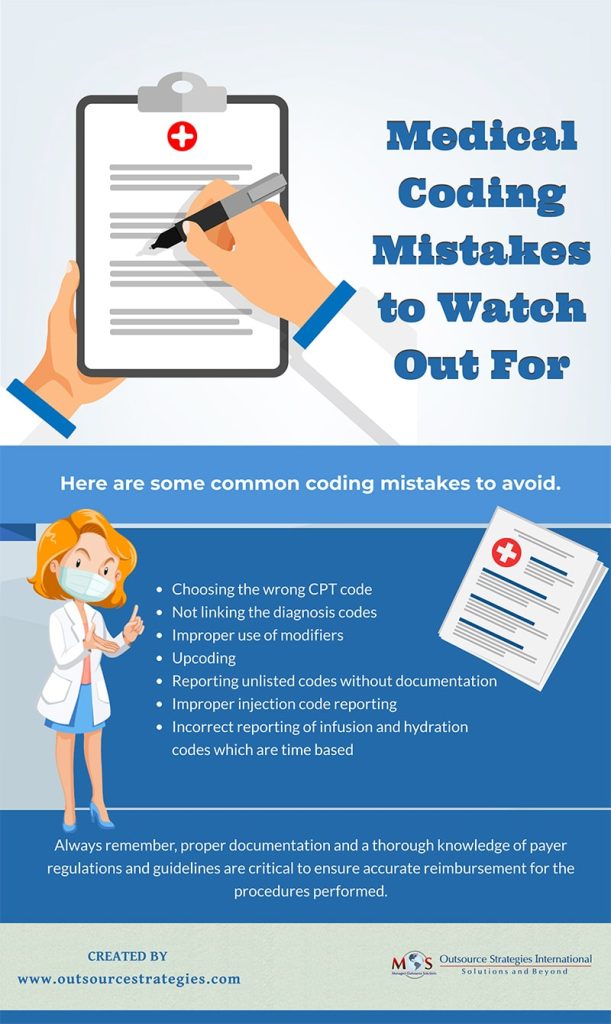
Thorough Review of Medical Documentation
Medical coders must perform a thorough review of medical documentation to understand the patient’s health condition and the services provided. This review ensures accurate coding, as coders rely on the information provided by healthcare providers. By carefully analyzing the documentation, coders can properly assign the relevant codes and minimize the risk of coding errors.
Assigning Correct Codes
The primary responsibility of medical coders is to assign accurate and appropriate codes to medical diagnoses, procedures, treatments, and services provided. Coders should follow coding guidelines and regulations, ensuring that the codes reflect the information documented by healthcare providers. Proper code assignment promotes the integrity of medical coding and ensures accurate billing and patient care.
Continuous Learning and Development
Medical coders must actively engage in continuous learning and development to stay abreast of the latest coding practices and regulations. As the coding landscape evolves, coders must invest time in educational programs, attend coding conferences, and participate in professional organizations. Continuous learning not only enhances their knowledge and skills but also enables them to adapt to changes in coding guidelines and systems.
Utilization of Coding Guidelines

Adherence to Official Coding Systems
Medical coders must adhere to official coding systems, such as the ICD and the CPT. These systems provide standardized codes for diagnoses, procedures, and treatments, ensuring consistency and accuracy in coding practices. Coders should familiarize themselves with the guidelines provided by these coding systems and follow them diligently to minimize the risk of coding errors.
Using Coding Manuals and References
In addition to coding systems, coders should utilize coding manuals and references as valuable resources. These references provide detailed instructions, coding conventions, and examples for various medical conditions and procedures. Coders can refer to these manuals to clarify uncertainties, validate code assignments, and enhance their knowledge. Utilizing coding manuals and references reinforces accurate coding practices.
Staying Updated with Coding Changes
Coding guidelines and practices are subject to continuous updates and changes. Medical coders must regularly stay updated with these changes to ensure accurate coding. They should monitor updates from coding organizations and regulatory bodies and actively seek out new coding information. By staying informed, coders can apply the most recent coding guidelines and prevent errors resulting from outdated practices.
Role of Collaboration in Reducing Mistakes
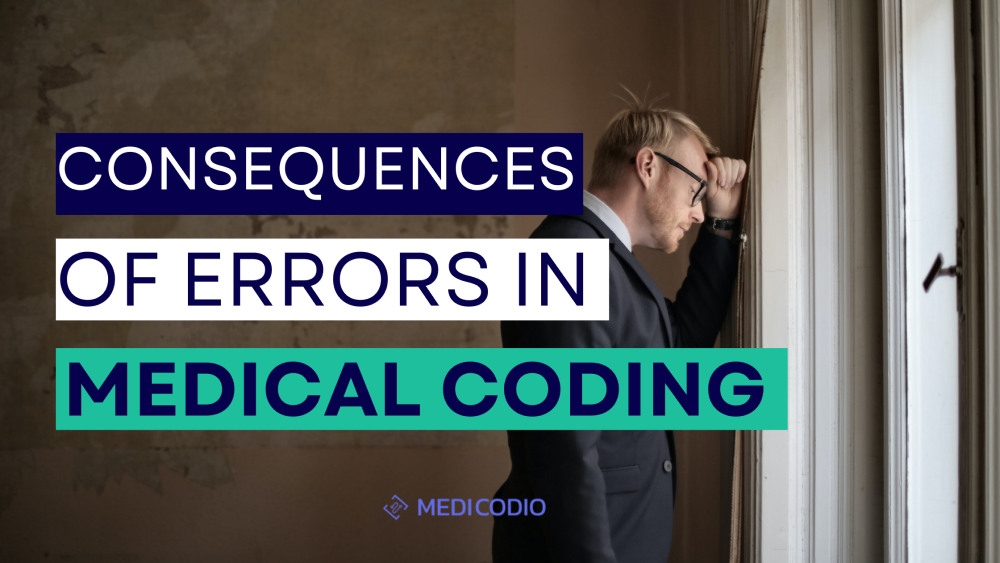
Close Communication with Healthcare Providers
Collaboration and close communication between medical coders and healthcare providers are crucial in reducing coding mistakes. Coders should establish open lines of communication to clarify any ambiguities in documentation, seek further information as needed, and ensure accurate code assignment. This collaboration helps coders gain a deeper understanding of the patient’s condition and facilitates accurate coding.
Working with Auditors and Compliance Officers
Medical coders should actively work with auditors and compliance officers to identify and rectify coding errors. These professionals can provide valuable insights into coding best practices, offer guidance on regulatory compliance, and help coders navigate complex coding scenarios. By collaborating with auditors and compliance officers, healthcare facilities can establish a solid framework for coding accuracy and compliance.
Learning from Previous Errors
Medical coders should learn from previous coding errors to prevent future mistakes. Regular review and analysis of coding mistakes can help coders identify common errors, underlying causes, and opportunities for improvement. By implementing corrective measures and learning from past mistakes, coders can enhance their coding skills and reduce the likelihood of similar errors in the future.
Conclusion
While medical coders strive for accuracy in their coding practices, mistakes can still occur due to various factors. The complexity of the coding system, human error, and lack of standardization contribute to coding mistakes. However, healthcare facilities can implement preventive measures such as staff training, technology utilization, and regular audits to minimize such errors. Quality control in medical coding is crucial to ensure accuracy, improve patient safety, and avoid legal troubles. Medical coders have the responsibility of thoroughly reviewing medical documentation, assigning correct codes, and continuously learning and developing their skills. By adhering to coding guidelines, staying updated with coding changes, and collaborating with healthcare providers, auditors, and compliance officers, medical coders can reduce mistakes and contribute to the overall efficiency of the healthcare system.
